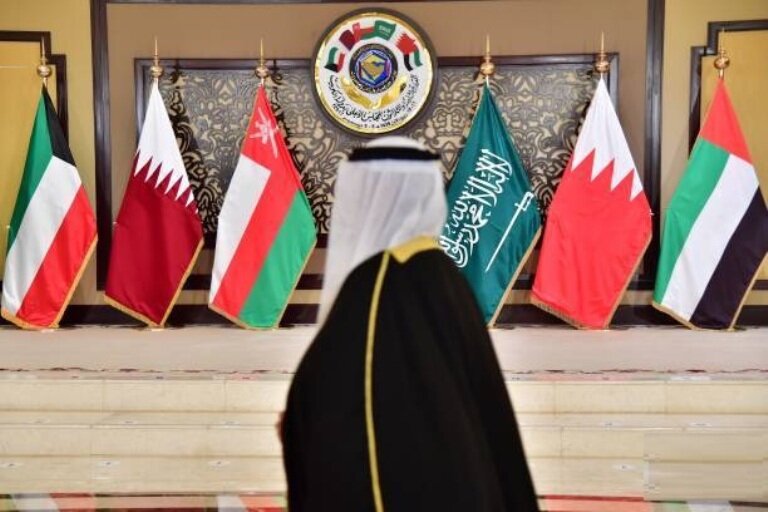Iran-PGCC relations: The real enemy lies elsewhere

TEHRAN – Good, evil, friend, and foe depend on where you stand in the story and how you tell it. This is also true for Southwest Asia with its complex dynamics.
If we were to narrate the story of this region over the past half-century, we would encounter revolutions, wars, alliances, and extensive foreign interventions. Among these, the relations between Iran and the Persian Gulf Cooperation Council (PGCC) more than any other dynamics highlight the role of mutual perceptions in international relation.
The enemy lies elsewhere
As a regional institution, the establishment of the PGCC was a response to geopolitical threats and regional instability. However, recent events show that there has been a misjudgment in identifying the true source of threats and instability.
The Islamic Revolution in Iran (1979) made the Persian Gulf states fear the spread of revolutionary ideals to their soil and the potential threat to their monarchies. The outbreak of the Iran-Iraq War (1980–1988) further framed both Iran and Iraq as the primary sources of regional instability in the minds of some Persian Gulf ruler without considering the root causes of the war or the role of Extra-regional actors who fueled it. After the fall of Saddam’s regime in 2003, the focus shifted entirely to Iran, portraying it as the threat that needed to be contained. But why Iran? What factors shaped the perception of regional leaders, leading them to see Iran as the threat?
Among the concerns of regional rulers regarding Iran - as previously mentioned - were the Islamic Revolution and the potential export of its revolutionary ideals, border disputes with the UAE (the three islands), the portrayal of Iran as an expansionist power, historical Arab vs. non-Arab sectarian tensions, and similar issues. Yet, all these appear to be little more than pretexts used by external forces to frame Iran as a threat.
Since its inception, the Islamic Revolution of Iran has consistently emphasized good neighborliness and friendly relations with neighboring countries, demonstrating this commitment in practice. As for border disputes, this is hardly the only such issue in the region. Despite numerous ongoing territorial conflicts - including those between the UAE and Saudi Arabia (like Khor al Udayd Region), Qatar and Saudi Arabia, Oman and the UAE, and several others - the disproportionate focus on the three islands issue and the support extended to the UAE by extra-regional powers to pursue its claims only serves to amplify the perceived threat from Iran.
Likewise, labeling Iran as expansionist is baseless, given that the Islamic Republic has never initiated a war. This narrative persists even as Western military bases operate near all of Iran’s borders, posing a constant threat to the country.
The artificial construction of Iran as a perceived threat persists while, just beyond the horizon, the Zionist regime has spent nearly eighty years fueling regional conflicts, rarely allowing a single year to pass without launching attacks. The ideology of 'Greater Israel' with its 'From the Nile to the Euphrates' expansionist vision, coupled with unconditional international support for Zionist terrorism and complete impunity for its crimes, has transformed this regime into an actual and immediate threat to all regional nations, including the Persian Gulf states.
The Abraham Accords: Normalization, and then nothing more
The West’s ongoing negotiations with the Persian Gulf states on normalizing relations with the Zionist regime may reinforce the misconception that the U.S. and Israel view these states as an equal partner. The important thing is not to forget that efforts to win the attention of the Persian Gulf states are merely a counterbalance to the thread of Iran for Zionist regime, and What they perceived as the 'Shia Crescent'-a threat to their own security-has consistently served as both a bargaining chip with the West and a shield against potential Zionist threats.
In fact, weakening Iran-or its regional influence, which has always been a response to the Zionist regime’s threats-would first and foremost endanger the Persian Gulf states themselves. Countries rich in oil and gas resources and situated in geostrategic locations that attract global powers, with Iran remaining their final line of defense.
The bread thief
What can protect the attractive ports of the Persian Gulf? How can trade be conducted fairly and rationally? And what can restrain the Zionist regime's commercial and military ambitions? while this regime's actions consistently follow one logic: 'Why buy the bread when I can steal it?'
Some Persian Gulf countries must ask themselves: How are we any different from the Palestinians in Gaza? What guarantees that this regime won’t one day turn the same aggression toward them? Their wealth and oil and gas reserves that could be disrupted in an instant and the very defense forces meant to protect them remain under the influence of the regime’s staunchest allies. Their commercial investments? Unlikely to ever rival the Zionist lobby’s financial stranglehold over the U.S. and other Western powers.
Today, after the recent Israel-U.S. violation of Iranian sovereignty, the truth is clearer than ever: the so-called Western-led order in the Middle East has always included an insatiable appendix named Israel. There will never be enough concessions to satisfy it, only an endless queue of next victims.
Leave a Comment